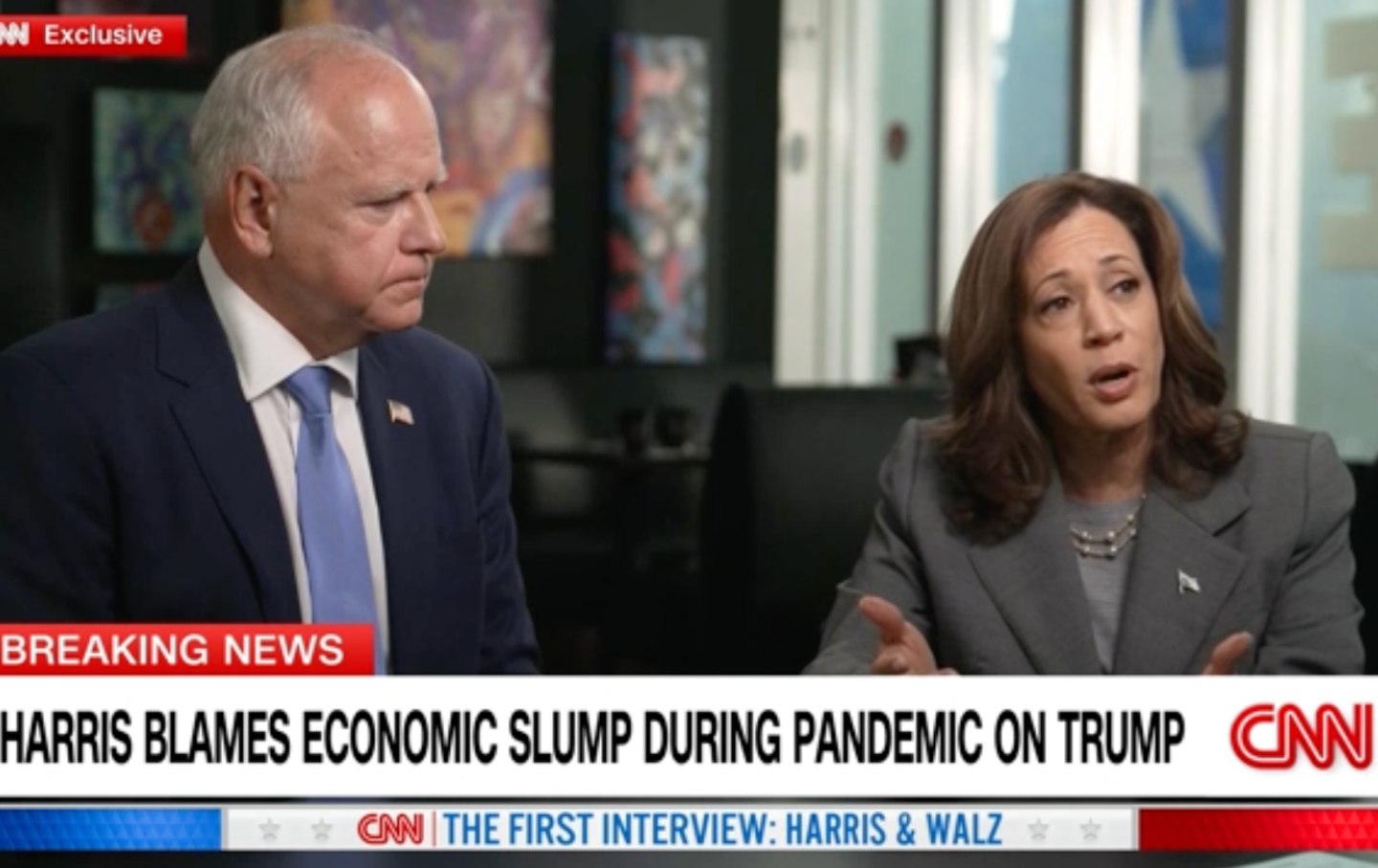
The Beltway Media Got Its Harris Interview. Can We Move On Now? The Beltway Media Got Its Harris Interview. Can We Move On Now?
Harris and Walz held their own during an interview driven more by media-made controversies than substance.
Aug 30, 2024 / Joan Walsh
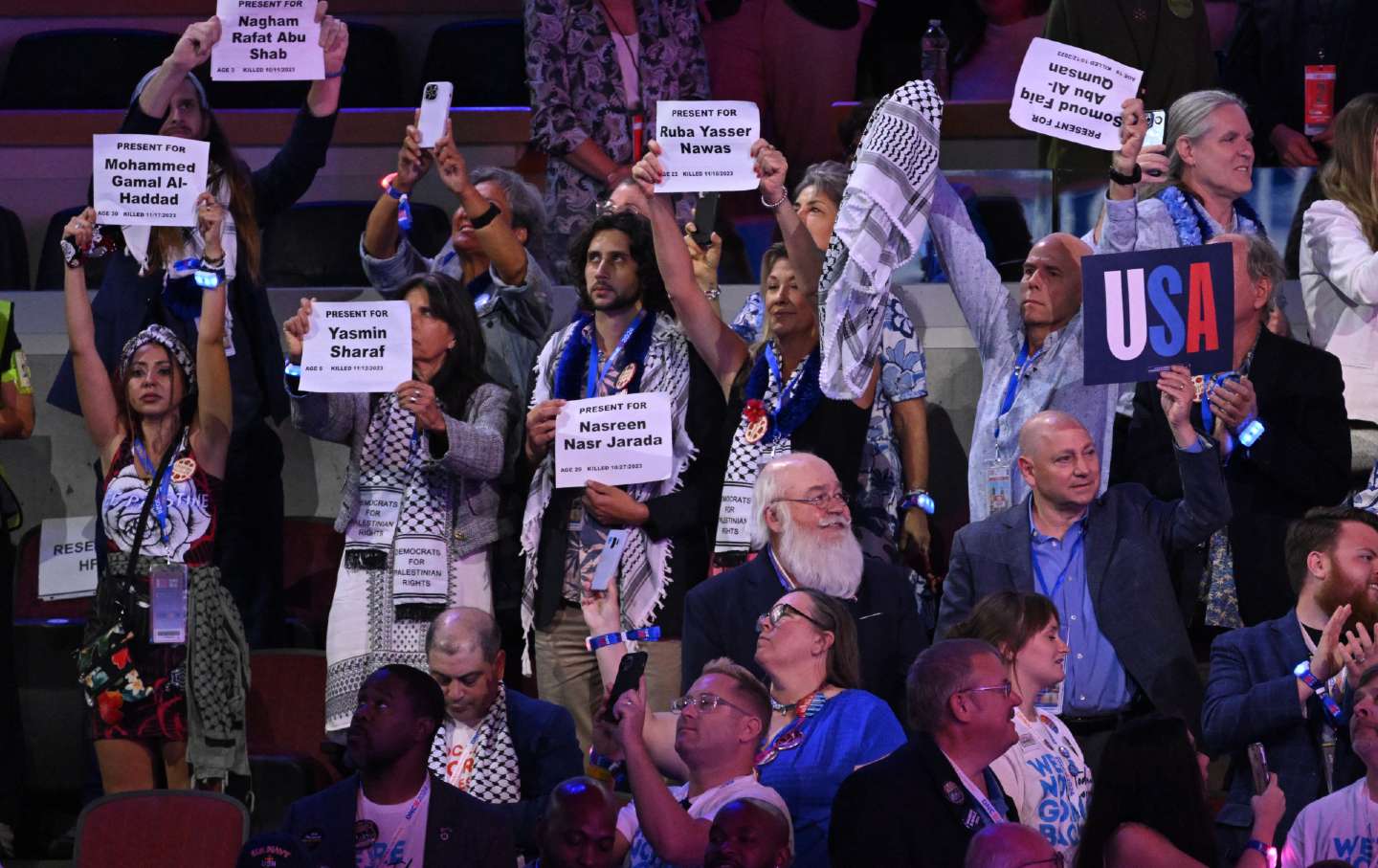
I’m Still Hoping to Vote for Kamala Harris I’m Still Hoping to Vote for Kamala Harris
But the hope I felt when she became the nominee has been curdling into despair over her refusal to allow a Palestinian to address the convention—and her continuing silence on Gaza...
Aug 30, 2024 / Benjamin Moser
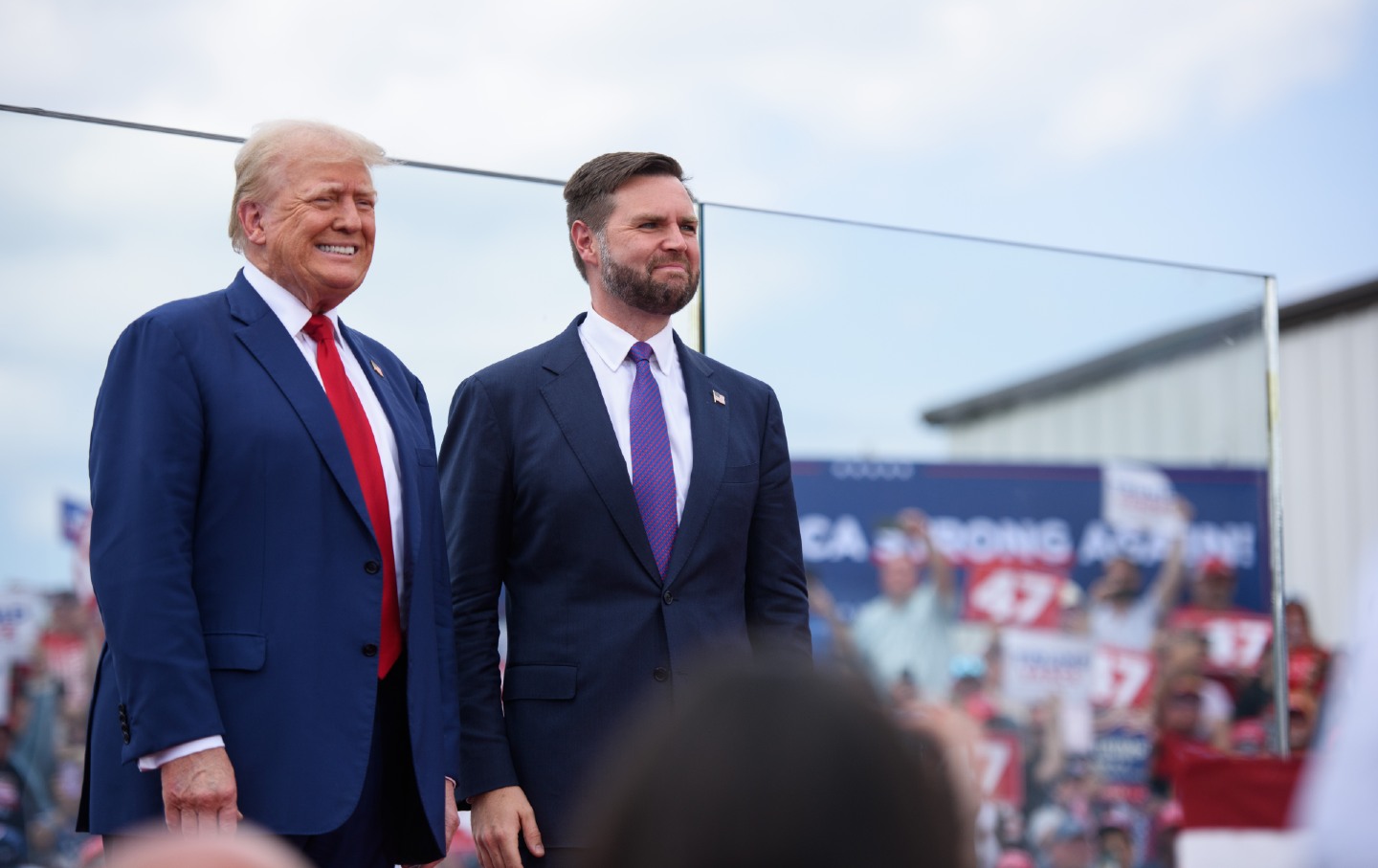
Don’t Underestimate Donald Trump’s Coalition of the Weird Don’t Underestimate Donald Trump’s Coalition of the Weird
The GOP’s new league of fringe figures tries to replicate the party’s winning formula of 2016. And it just might work again.
Aug 30, 2024 / Jeet Heer
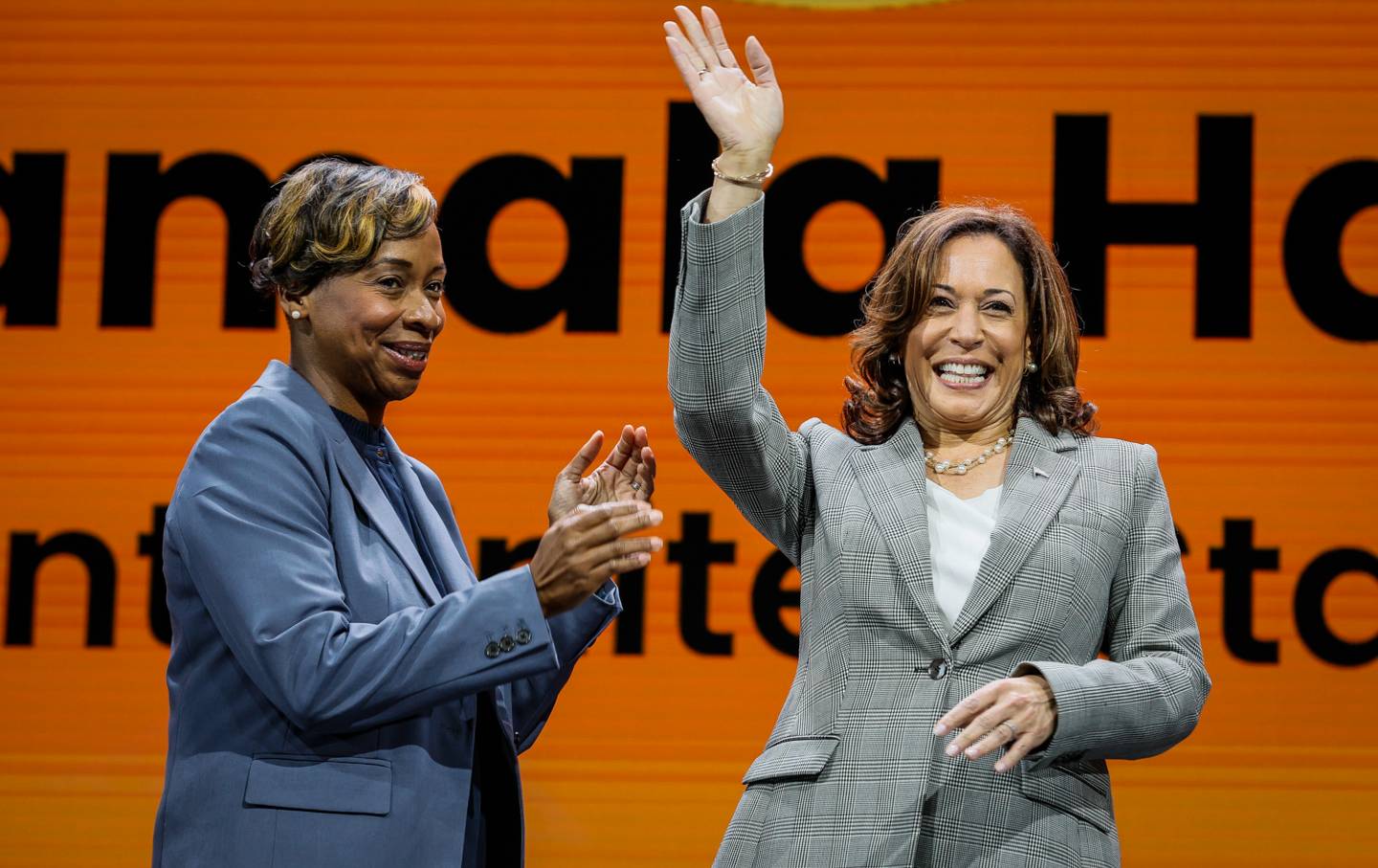
It’s Not Too Early to Ask: Who Should Replace Merrick Garland? It’s Not Too Early to Ask: Who Should Replace Merrick Garland?
Should Kamala Harris win in November, her attorney general pick will be among her most critical cabinet appointments. Progressives should start organizing now.
Aug 30, 2024 / Elie Mystal
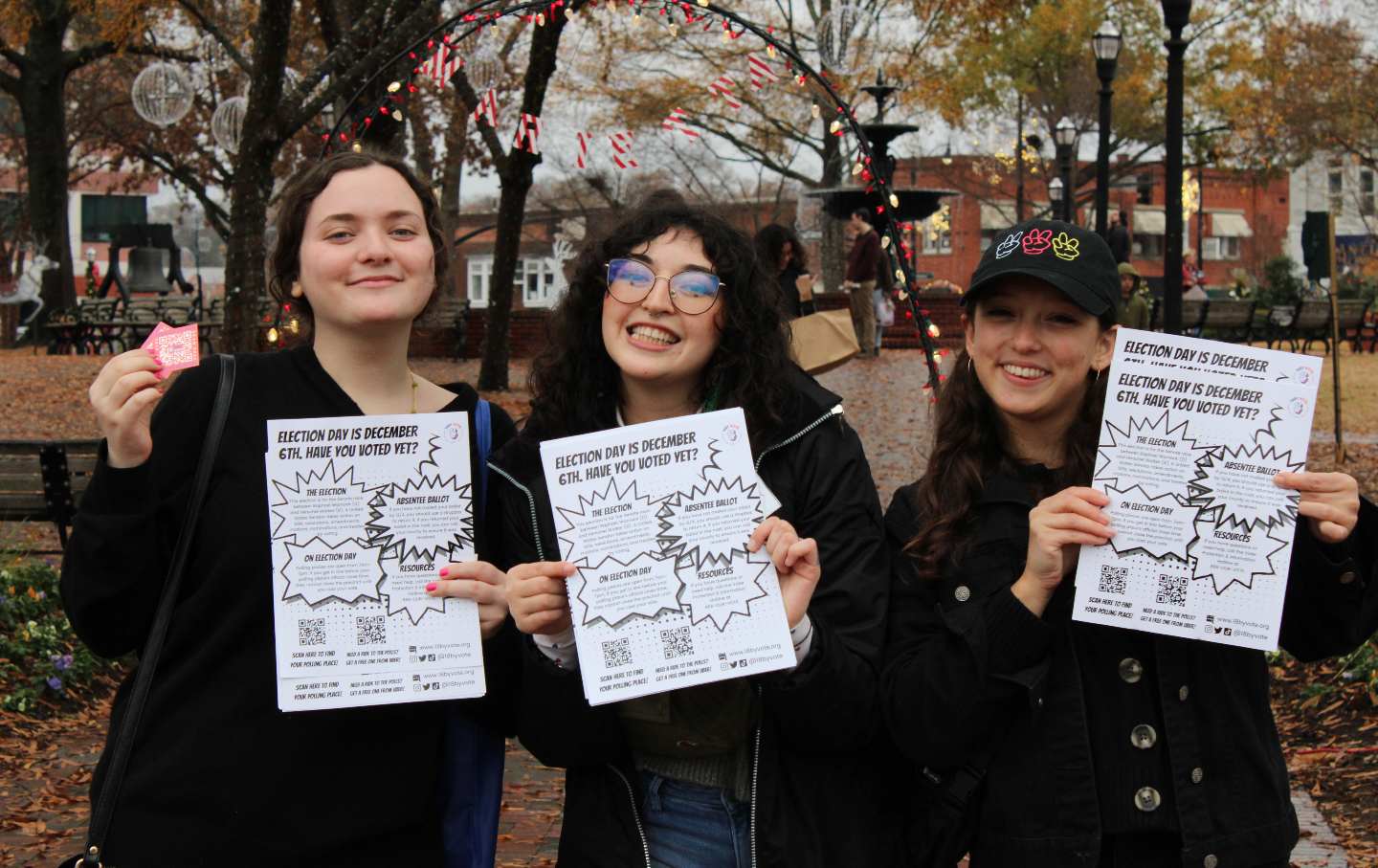
Youth Voter Turnout in NYC Is Struggling. These Organizations Want to Fix It. Youth Voter Turnout in NYC Is Struggling. These Organizations Want to Fix It.
A lack of knowledge about the process—from registration to marking a ballot—is often the main barrier between youth and voting. “If young people sit it out, that will have an impa...
Aug 30, 2024 / StudentNation / Aminata Gueye and Nikole Rajgor
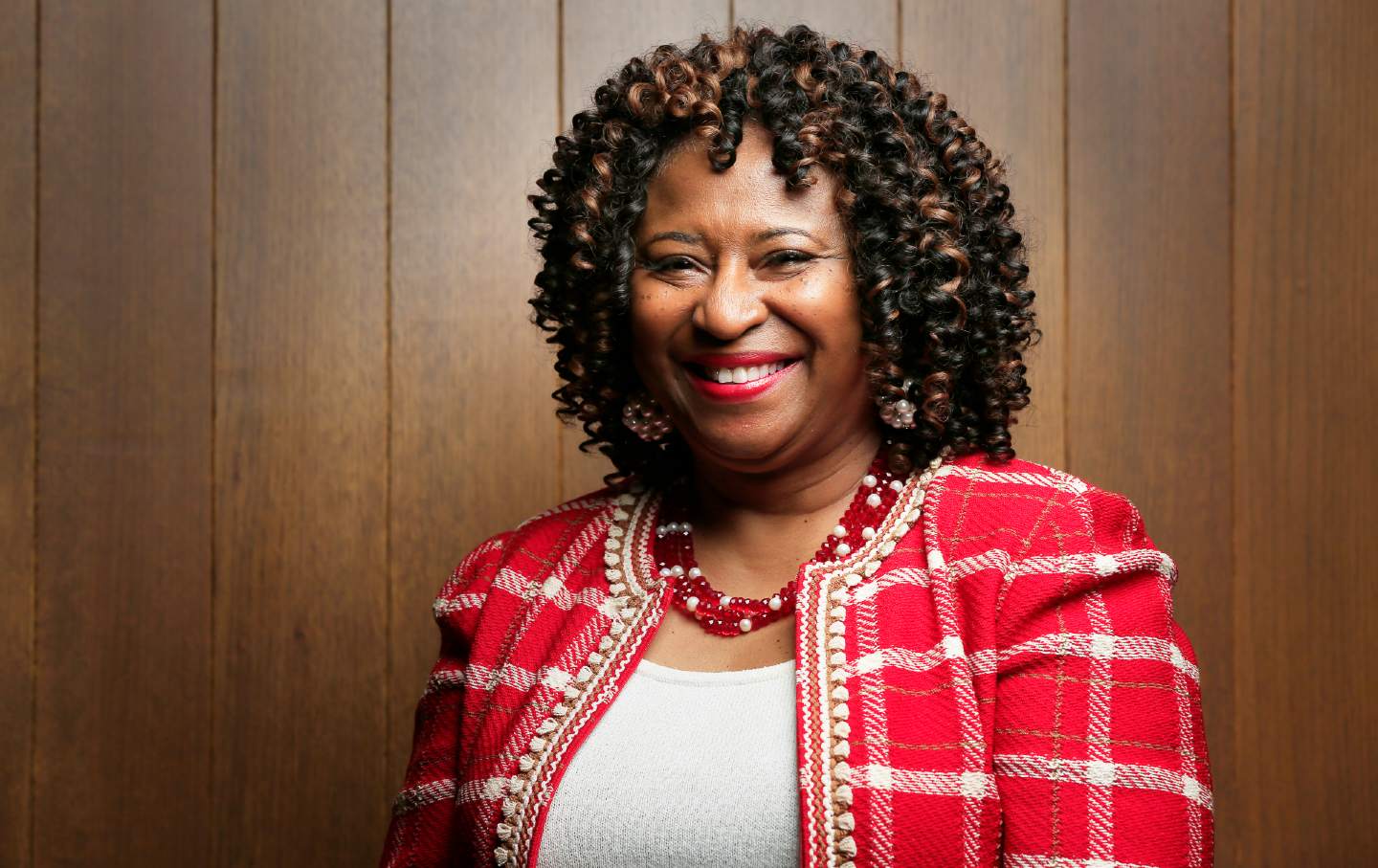
The Backlash Comes for Oakland’s Progressive Prosecutor The Backlash Comes for Oakland’s Progressive Prosecutor
Pamela Price, the Alameda County DA, is fighting a recall vote and to defend her unwavering refusal to over-criminalize young people.
Aug 30, 2024 / Piper French
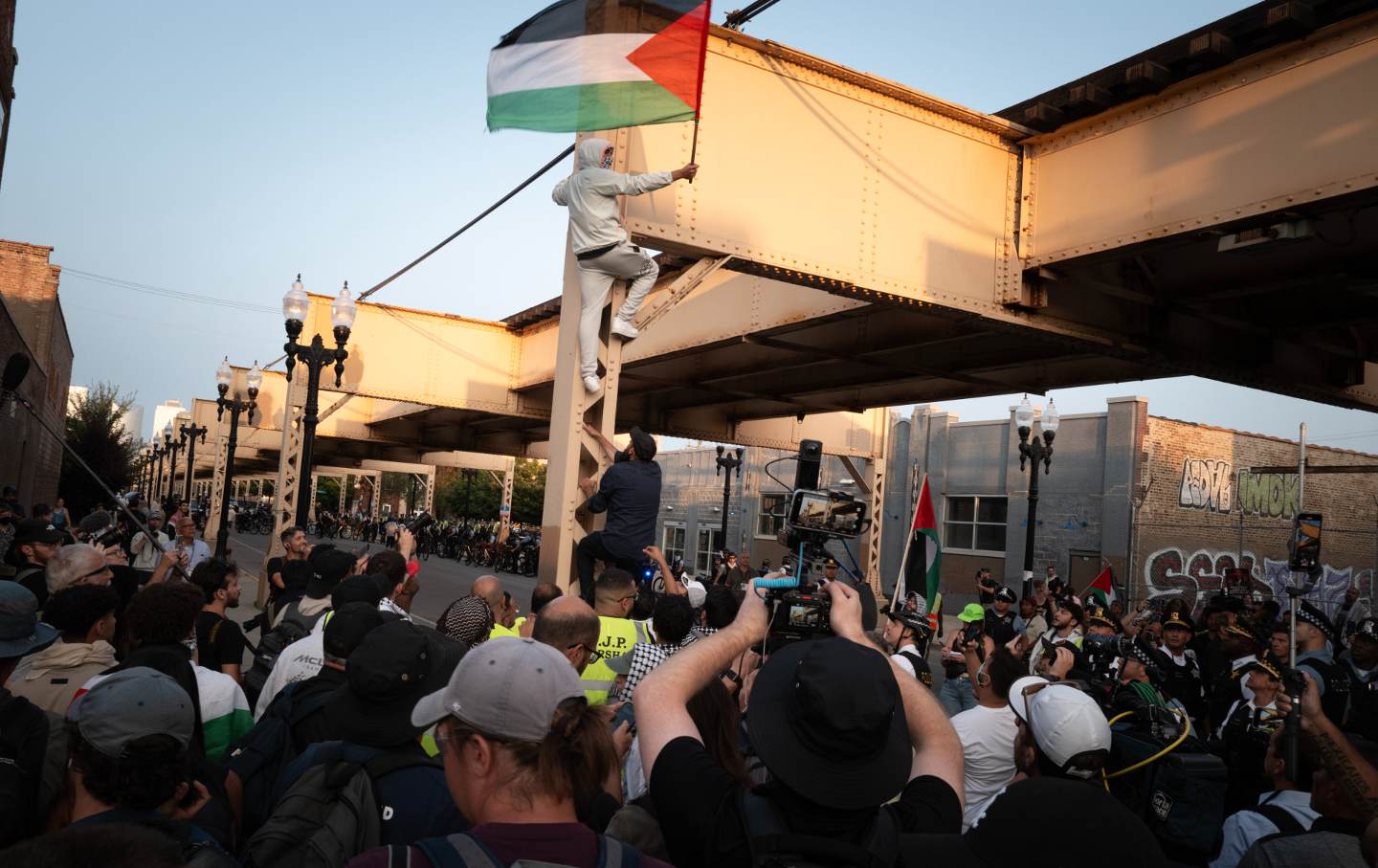
Palestinians Will Speak Whether Democrats Want Them to or Not Palestinians Will Speak Whether Democrats Want Them to or Not
The party may have successfully prevented Palestinians from addressing the DNC. But it cannot hold back the tide forever.
Aug 29, 2024 / Y.L. Al-Sheikh

Biden Failed Us on Public Health. Harris Must Do Better. Biden Failed Us on Public Health. Harris Must Do Better.
These are some concrete steps a President Harris could take to undo the damage of her current boss.
Aug 29, 2024 / Gregg Gonsalves
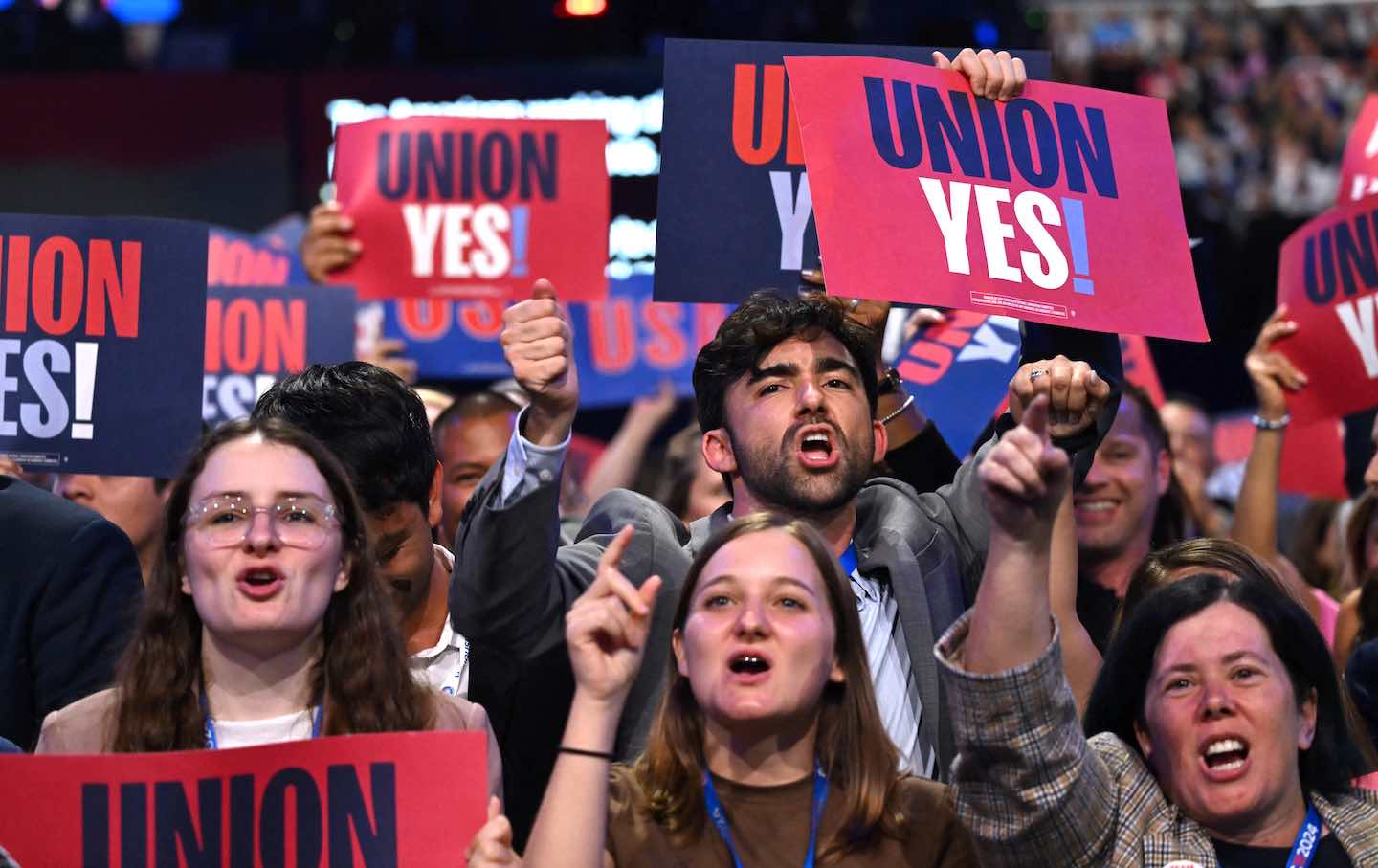
Democrats Held the Most Pro-Union Convention in History. Now, They Must Take That Message on the Road. Democrats Held the Most Pro-Union Convention in History. Now, They Must Take That Message on the Road.
Kamala Harris and Tim Walz should learn from what worked at the DNC and make organized labor a central focus of their fall campaigning.
Aug 29, 2024 / John Nichols
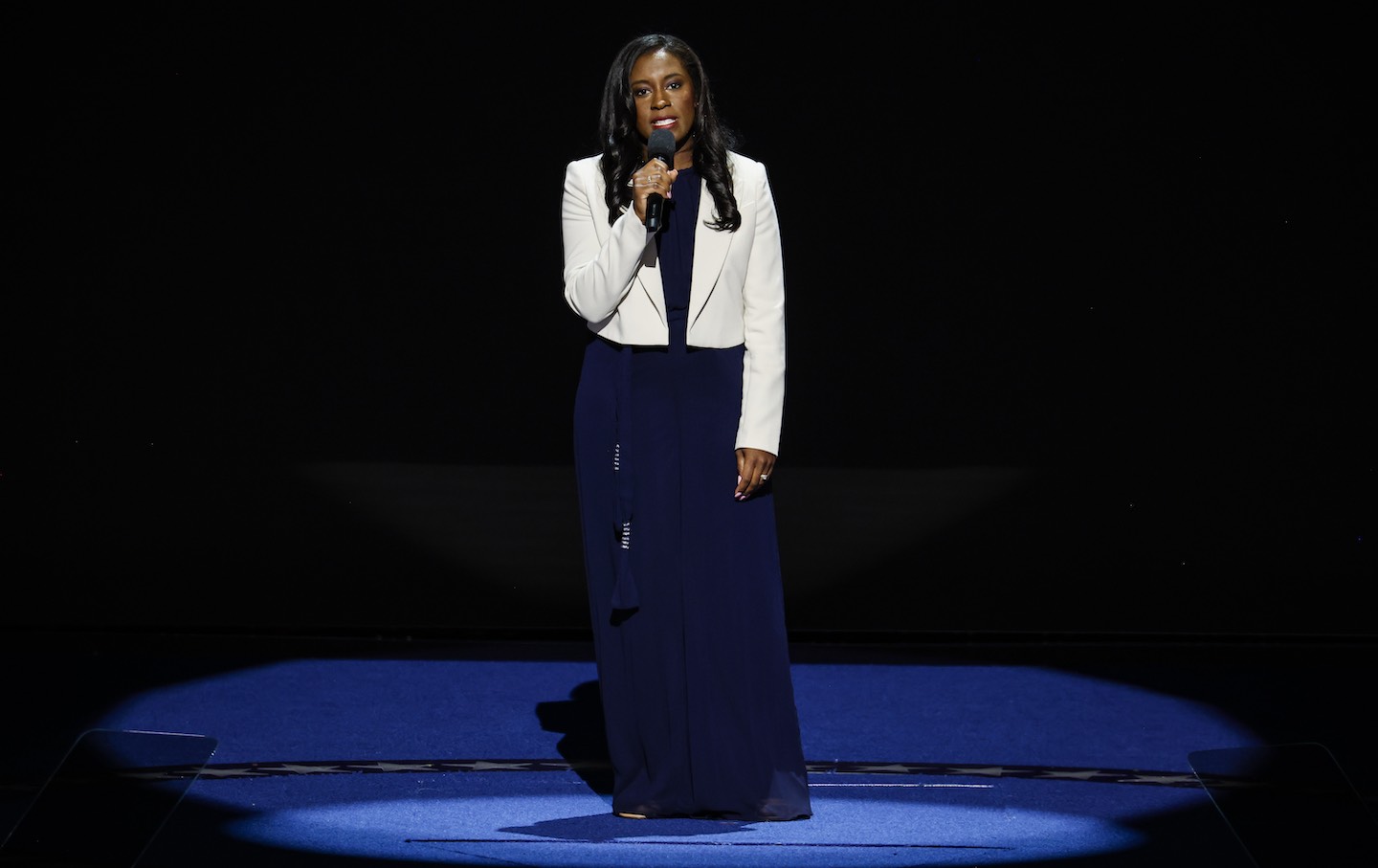
I Already Knew Kamala Harris. In Chicago, I Got to Meet Kaitlyn Joshua. I Already Knew Kamala Harris. In Chicago, I Got to Meet Kaitlyn Joshua.
As always, the DNC was an endurance grind. But my serendipitous encounter with a woman who embodies Harris’s reproductive justice agenda was the high point for me.
Aug 28, 2024 / Joan Walsh
